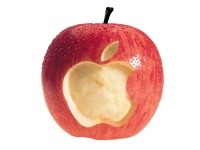
Apple and Open Source: Raising the Bar
Two excellent articles published recently on Apple’s quest to improve user experience in its mobile products such as the iPhone and what Open Source can learn from it.
1. Making Open-Source Software Free and Fabulous, by Jim Zemlin, Linux Foundation, BusinessWeek
This article aptly reiterates the pressing need to focus on further improving the Linux and Open Source application user experience.
“We’re moving to a tech world with Apple on one side and virtually everyone else on the other. Linux needs to more effectively compete with Steve Jobs and the magic of Apple. It’s important that open-source products add more value for users than simply being free. Open-source software also needs to be fabulous….
…Providing a good user experience isn’t paramount under the white lights of the data center. In consumer electronics, it’s a different story. Mobile Linux vendors must increase their technical investments by working on key open-source projects to make every component used in Linux devices benefit the user experience. That includes making devices boot up faster, connect better, and display graphics more smoothly. In the server market, IBM made the investments to improve Linux for information technology workers a decade ago. The mobile industry uniting behind Linux should do the same.”
2. Why Open Source developers should thank Apple (and why Apple should thank open source) by Dj Walker-Morgan, The H Open
This article does a good job of highlighting areas where Apple has helped Open Source by raising the bar for usability.
“Apple has also set a high competitive bar for open source, and proprietary developers to exceed. For too long, the competition for open source was defined by Microsoft’s offerings…
…although Apple has made design, policy and commercial decisions that people in the free and open source software community vigorously object to, they have provided a number of things too: a real competitive bar to replace the complacent Microsoft competition and a disruption to the mobile phone market which has indirectly led to Linux based phones moving from oddities to center stage. It is said that a rising tide raises all ships, and Apple has, in the last ten years created competition that is making all the players in the business rise to the challenge of competing. Open source and free software are rising to that competitive challenge and if that means users of free software and open source software get as good an experience using it as Apple’s well polished offerings, isn’t that something to be thankful for?”

